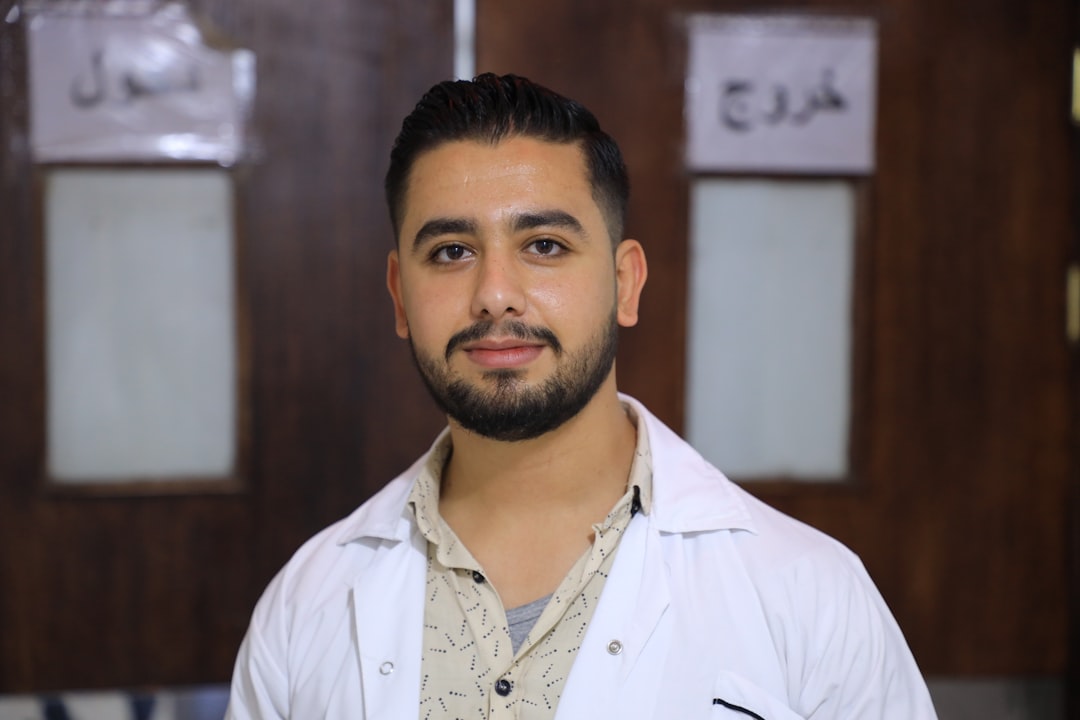In an increasingly multicultural society, the significance of interpreter services in Norwegian healthcare cannot be overstated. As Norway welcomes individuals from diverse linguistic backgrounds, the need for effective communication between healthcare providers and patients becomes paramount. Language barriers can lead to misunderstandings, misdiagnoses, and inadequate treatment, ultimately compromising patient safety and care quality.
Therefore, interpreter services play a crucial role in bridging these gaps, ensuring that all patients receive the attention and understanding they deserve. Moreover, the importance of interpreter services extends beyond mere communication; it encompasses the very essence of patient rights and dignity. Every individual, regardless of their language proficiency, has the right to understand their health conditions, treatment options, and the implications of their choices.
By providing professional interpreters, healthcare facilities not only comply with legal obligations but also foster an environment of trust and respect. This commitment to inclusivity enhances patient satisfaction and promotes better health outcomes, making interpreter services an indispensable component of the Norwegian healthcare system. Book your 1-hour strategy session with Norway Relocation Group.
Summary
- Interpreter services are crucial in Norwegian healthcare to ensure effective communication between healthcare providers and patients with limited proficiency in the Norwegian language.
- The language barrier in healthcare can lead to misunderstandings, misdiagnoses, and inadequate treatment, highlighting the importance of professional interpreter services.
- Professional interpreters play a vital role in healthcare settings by accurately conveying medical information, ensuring patient understanding, and upholding patient confidentiality.
- Norwegian healthcare offers various types of interpreter services, including in-person, telephone, and video interpretation, to cater to diverse patient needs.
- Accessing interpreter services in Norwegian healthcare involves contacting the hospital or healthcare facility, which will arrange for an interpreter based on the patient’s language preference.
Understanding the Language Barrier in Healthcare
The language barrier in healthcare settings can manifest in various ways, often leading to significant challenges for both patients and providers. For patients who are not fluent in Norwegian, navigating the complexities of medical terminology and procedures can be daunting. This barrier can result in patients feeling alienated or anxious, which may deter them from seeking necessary medical attention.
Furthermore, when patients cannot articulate their symptoms or concerns effectively, healthcare professionals may struggle to provide accurate diagnoses or appropriate treatments. Additionally, the language barrier can exacerbate existing health disparities among immigrant populations. Many individuals from non-Norwegian speaking backgrounds may already face challenges related to access to healthcare services due to cultural differences or socioeconomic factors.
When compounded by language difficulties, these challenges can lead to a cycle of poor health outcomes and increased reliance on emergency services. Understanding the nuances of these barriers is essential for healthcare providers to develop strategies that promote equitable access to care for all patients.
The Role of Professional Interpreters in Healthcare Settings

Professional interpreters serve as vital conduits between patients and healthcare providers, facilitating clear and accurate communication. Their role extends beyond mere translation; they must also convey cultural nuances and context that may influence a patient’s understanding of their health situation. By employing trained interpreters, healthcare facilities can ensure that patients receive comprehensive information about their conditions and treatment options, empowering them to make informed decisions about their care.
Furthermore, professional interpreters are equipped with the skills necessary to handle sensitive medical discussions with discretion and empathy. They understand the importance of confidentiality and are trained to navigate complex emotional situations that may arise during medical consultations. This level of professionalism not only enhances the patient experience but also allows healthcare providers to focus on delivering high-quality care without the added burden of language-related misunderstandings.
Types of Interpreter Services Available in Norwegian Healthcare
Norwegian healthcare offers a variety of interpreter services tailored to meet the diverse needs of its patient population. One common type is on-site interpreting, where interpreters are physically present during medical appointments. This method is particularly effective for complex consultations that require nuanced communication, such as mental health assessments or discussions about treatment plans.
In addition to on-site interpreting, remote interpreting services have gained popularity in recent years. These services utilise technology to connect patients and providers with interpreters via phone or video calls. Remote interpreting can be especially beneficial in rural areas where access to on-site interpreters may be limited.
It also allows for quicker response times in urgent situations, ensuring that language barriers do not hinder timely medical care.
How to Access Interpreter Services in Norwegian Healthcare
Accessing interpreter services within the Norwegian healthcare system is designed to be straightforward for both patients and providers. Healthcare facilities typically have established protocols for requesting interpreter assistance, which may include contacting a dedicated service line or filling out specific forms prior to appointments. Patients are encouraged to inform their healthcare provider about their language needs as early as possible to ensure that appropriate arrangements can be made.
Moreover, many hospitals and clinics have multilingual staff members who can assist in coordinating interpreter services. This proactive approach helps streamline the process and ensures that patients feel supported throughout their healthcare journey. It is essential for patients to know that they have the right to request an interpreter at any point during their care, reinforcing the commitment to equitable access for all individuals.
Ensuring Effective Communication through Interpreter Services

To maximise the effectiveness of interpreter services in healthcare settings, it is crucial to establish clear communication protocols between all parties involved. Healthcare providers should be trained on how to work effectively with interpreters, including understanding their role and respecting their expertise. This collaboration fosters an environment where interpreters can facilitate open dialogue without feeling sidelined or undervalued.
Additionally, it is important for healthcare providers to speak directly to the patient rather than addressing the interpreter. This practice not only promotes a sense of agency for the patient but also helps build rapport and trust between the patient and provider. By prioritising effective communication strategies, healthcare facilities can enhance patient experiences and outcomes while minimising the potential for misunderstandings.
Cultural Sensitivity and Interpreter Services in Healthcare
Cultural sensitivity is a critical aspect of providing effective interpreter services in healthcare settings. Interpreters must possess not only linguistic skills but also an understanding of cultural nuances that may impact patient interactions. For instance, certain cultures may have specific beliefs about health and illness that influence how patients communicate their symptoms or concerns.
A culturally competent interpreter can help bridge these gaps by providing context that enhances understanding. Moreover, healthcare providers should be aware of cultural differences that may affect patient behaviour and expectations. By fostering an environment of cultural sensitivity, healthcare facilities can create a more inclusive atmosphere where patients feel valued and understood.
This approach not only improves communication but also contributes to better health outcomes by addressing the unique needs of diverse patient populations.
Training and Qualifications for Healthcare Interpreters
The training and qualifications required for healthcare interpreters are essential components that ensure high-quality service delivery. Professional interpreters typically undergo rigorous training programmes that cover both language proficiency and specialised medical terminology. This training equips them with the skills necessary to navigate complex medical discussions while maintaining accuracy and clarity.
In addition to language training, many interpreters pursue certifications that validate their expertise in healthcare interpreting. These certifications often require ongoing education to keep interpreters updated on best practices and emerging trends within the field. By prioritising training and qualifications, healthcare facilities can ensure that they are utilising skilled professionals who are capable of providing effective communication support for their patients.
Overcoming Challenges in Utilising Interpreter Services
Despite the clear benefits of interpreter services in Norwegian healthcare, several challenges may arise during their implementation. One common issue is the availability of qualified interpreters, particularly in less populated areas where demand may be lower. This scarcity can lead to delays in accessing necessary services, potentially impacting patient care.
Another challenge is the potential for miscommunication due to varying levels of interpreter experience or familiarity with specific medical contexts. To mitigate these risks, healthcare facilities must prioritise ongoing training and support for interpreters while also establishing clear guidelines for when and how interpreter services should be utilised. By addressing these challenges proactively, healthcare providers can enhance the effectiveness of interpreter services and improve overall patient experiences.
Best Practices for Utilising Interpreter Services in Norwegian Healthcare
To optimise the use of interpreter services within Norwegian healthcare settings, several best practices should be considered. Firstly, it is essential for healthcare providers to establish a collaborative relationship with interpreters, recognising them as integral members of the care team. This collaboration fosters an environment where open communication can thrive, ultimately benefiting patient outcomes.
Secondly, healthcare facilities should implement standardised procedures for requesting and utilising interpreter services across all departments. Consistency in these processes ensures that all staff members are aware of how to access support when needed, reducing confusion and enhancing efficiency. Additionally, regular feedback from both patients and interpreters can help identify areas for improvement and inform future training initiatives.
The Future of Interpreter Services in Norwegian Healthcare
Looking ahead, the future of interpreter services in Norwegian healthcare appears promising as advancements in technology continue to shape the landscape of communication support. The integration of telehealth platforms has already begun to revolutionise how interpreter services are accessed, allowing for greater flexibility and responsiveness in meeting patient needs. Furthermore, as Norway’s population continues to diversify, there will likely be an increasing demand for specialised interpreter services tailored to specific communities or languages.
This trend underscores the importance of ongoing investment in training programmes and resources that equip interpreters with the skills necessary to navigate this evolving landscape effectively. In conclusion, as we move forward into a more interconnected world, the role of interpreter services in Norwegian healthcare will remain vital in ensuring equitable access to care for all individuals. By prioritising effective communication strategies, cultural sensitivity, and ongoing training for interpreters, Norway can continue to uphold its commitment to providing high-quality healthcare for its diverse population.
For those looking to enhance their understanding of Norwegian language and culture—an essential aspect for anyone involved in interpreting—consider enrolling in courses at the NLS Norwegian Language School. Their comprehensive programmes are designed not only to teach language skills but also to foster cultural awareness that is crucial for effective communication within healthcare settings. With expert instructors and a supportive learning environment, NLS offers an invaluable resource for aspiring interpreters seeking to make a meaningful impact in Norwegian healthcare.
Speak Norwegian with confidence. Enroll in a class at the NLS Norwegian Language School now.

